Sage for conception
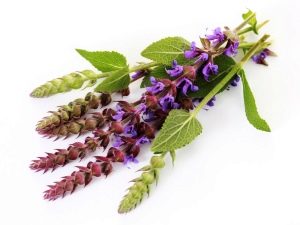
as a medicinal plant sage known for a long time. This herb is distinguished by a large number of chemicals and compounds included in it, which positively affect many body systems.
Anti-inflammatory, disinfectant, astringent, analgesic, expectorant, diuretic, carminative, antiseptic properties of this plant are actively used.
Sage is perhaps the most widely used herb in healing. For its health benefits, this plant has been called the "sacred herb" since antiquity. Among other things, sage has another invaluable quality - it helps to solve problems with infertility in women and men.
For medicinal purposes, use the leaves and seeds of sage officinalis. Healing decoctions and infusions are prepared from them.

Beneficial features
As a remedy for the treatment of inability to conceive, sage has proven itself due to the following beneficial properties:
- Correct the hormonal background in women.
- Helps increase the cervical reflex in women, increasing the likelihood of conception.
- Helps to improve the quality of sperm in men, activating the production of testosterone (male sex hormone).
- The use of sage can significantly reduce or completely eliminate frigidity.
These valuable qualities of sage have been known and used by our ancestors since ancient times, filling in the "gaps" of the official medicine of the past.
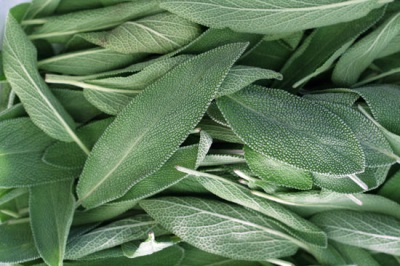
Sage for women
Very often, the cause of inability to conceive is hormonal problems.In particular, it is a deficiency of the hormone estrogen (the female sex hormone). Faced with such a problem, do not rush to apply medication. Sage in this case can be an equally effective solution.
The composition of this plant includes phytohormones, in their chemical component similar to estrogen, which has a significant impact on the functioning of the ovaries, activates the growth of follicles and promotes the development of the egg.
Sage enhances the cervical reflex, which increases the ability of the uterus to capture sperm.


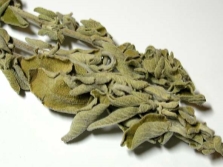
Given such an effect of sage on the hormonal background, it is reasonable to determine the concentration of various hormones in the blood before using therapy and consult a doctor.
Sage for men
This medicinal plant has proven itself as a miraculous remedy for the treatment of male diseases.
As for the problem of infertility, a man can also be the reason why a couple cannot conceive a child.
Most often, the violation of male reproductive function is based on a qualitative and quantitative change in spermatozoa (hypoleperemia). And this problem has long been treated with a decoction of sage.
Sage contributes to the formation of testosterone (male sex hormone) in the male body, which improves sperm quality. Moreover, it is believed that the likelihood of having a boy will increase if you drink this decoction during the period of trying to conceive a child.

How to use
Sage as a remedy for infertility problems can be used in the following ways.
Seed tincture
A teaspoon of seeds is poured into a glass of water brought to a boil, and allowed to brew. Drink three times a day, a tablespoon before meals.The infusion can be left in the refrigerator the next day, but it is better to prepare a fresh portion every day.
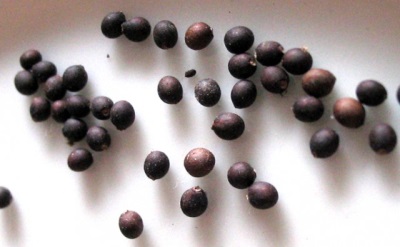
Decoction
Place dry chopped grass (one tablespoon) in an enamel bowl, add 200 gr. water, bring to a boil, keep on low heat for 5 - 10 minutes, wait for cooling, strain and add boiled water to the original volume. They drink the same way as the infusion, three times a day, one tablespoon before meals.
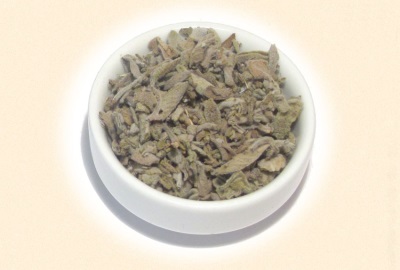
Tea bags
Everything is simple here: one sachet per glass of boiling water, leave for 15 - 20 minutes. Drink this glass during the day in three doses.

Juice
Squeeze a teaspoon of juice from sage, salt and drink in two doses: half a teaspoon in the first and second half of the day.
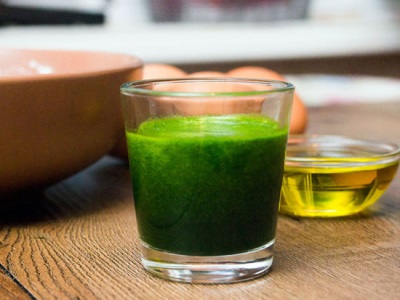
You need to start taking sage on the fifth day from the beginning of menstruation or immediately after they end. Continue taking it for one and a half to two weeks (until the ovulation period). The course is repeated for three consecutive months. In the absence of conception, you need to take a break of one month and then repeat the course.
In addition to taking sage internally, douching is also good. To do this, pour one tablespoon of grass with a glass of boiling water and let cool. The course (as well as when used inside) can be repeated for three months. In the absence of conception, a break of one month is taken and then carried out again.
If there is no result from the use of medicines based on sage, it is necessary to undergo a comprehensive medical examination. The problem may be associated with inflammatory processes in the female reproductive system. At the time of the examination, the reception of sage should be suspended.
Contraindications
For all its indisputable value, sage still has serious contraindications for use, which you must definitely familiarize yourself with before starting treatment with this herb.

Sage is contraindicated:
- with elevated estrogen levels;
- with hypothyroidism (lack of hormones) of the thyroid gland;
- in the presence of uterine fibroids;
- with various manifestations of endometriosis;
- sage accelerates the growth of follicles, and with a lack of progesterone, this can lead to the formation of cysts, provoking polycystic ovaries;
- with existing polycystic ovaries.
- if the correct use of sage promotes the formation of eggs, then its excessive use leads to the opposite process - the destruction of the eggs, which, in turn, disrupts the menstrual cycle, lengthening its first phase.
- Excessive concentration of estrogen in a woman's body can provoke a premature rupture of the follicle and, accordingly, the impossibility of conception. That is, the result will be completely opposite to the expected one.
- as soon as pregnancy has come, taking sage should be stopped immediately. This is due to the ability of the plant to increase the level of estradiol and reduce the concentration of progesterone, which threatens miscarriage.
- sage interferes with the production of milk, therefore it is contraindicated during lactation.
- the use of medicines based on sage before bedtime causes anxiety and insomnia.
- well, in general, excessive passion for this herb can cause hallucinations, allergies, or cause poisoning.
No matter what useful properties this or that remedy possesses, no one has canceled a reasonable approach to the use of drugs.Therefore, if you feel physical discomfort even if the dosages are observed, you need to stop taking sage and consult with a specialist who agreed on taking sage for conception.
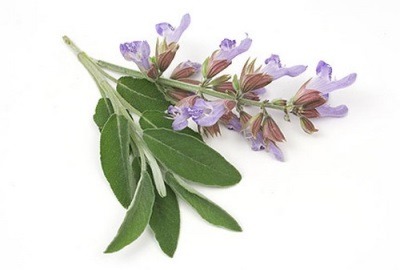
Special Recommendations
Taking sage for conception should not be a self-medication. In some cases, it can harm the body, and in a number of diseases it will be useless. Therefore, you must first pass the tests and consult with your doctor.
If you decide to resort to the help of sage for the treatment of infertility, you must first be tested for the following hormones:
- progesterone,
- estradiol,
- testosterone,
- FSH (follicle stimulating hormone),
- LH (luteinizing hormone),
- TSH (thyroid stimulating hormone).

The combination of sage with linden will enhance the healing effect, since linden contains phytohormones that also promote conception.
If the cause of infertility is an increased content of prolactin in a woman, it is useful to combine sage with hops and lumbago, which can reduce the concentration of this hormone.

Women after thirty, after consulting a specialist, are often recommended to undergo regular therapy that equalizes hormonal levels: in the morning every day for 30 days, take one glass of sage herb infusion (a tablespoon of dry herb in a glass of boiling water, wait for cooling, drink half an hour before meals). It is good to add honey and lemon to the infusion. Such treatment courses are held with a break of three months.



Herbal treatment can be combined with taking medications that are prescribed to lower estrogen levels or to normalize the menstrual cycle, especially the second phase (such as Duphaston and Utrozhestan), as well as in combination with other methods of treating inability to conceive.


















Sage really helped me, but my friend didn't seem to. Probably, it all depends on individual characteristics and, possibly, a combination of circumstances.